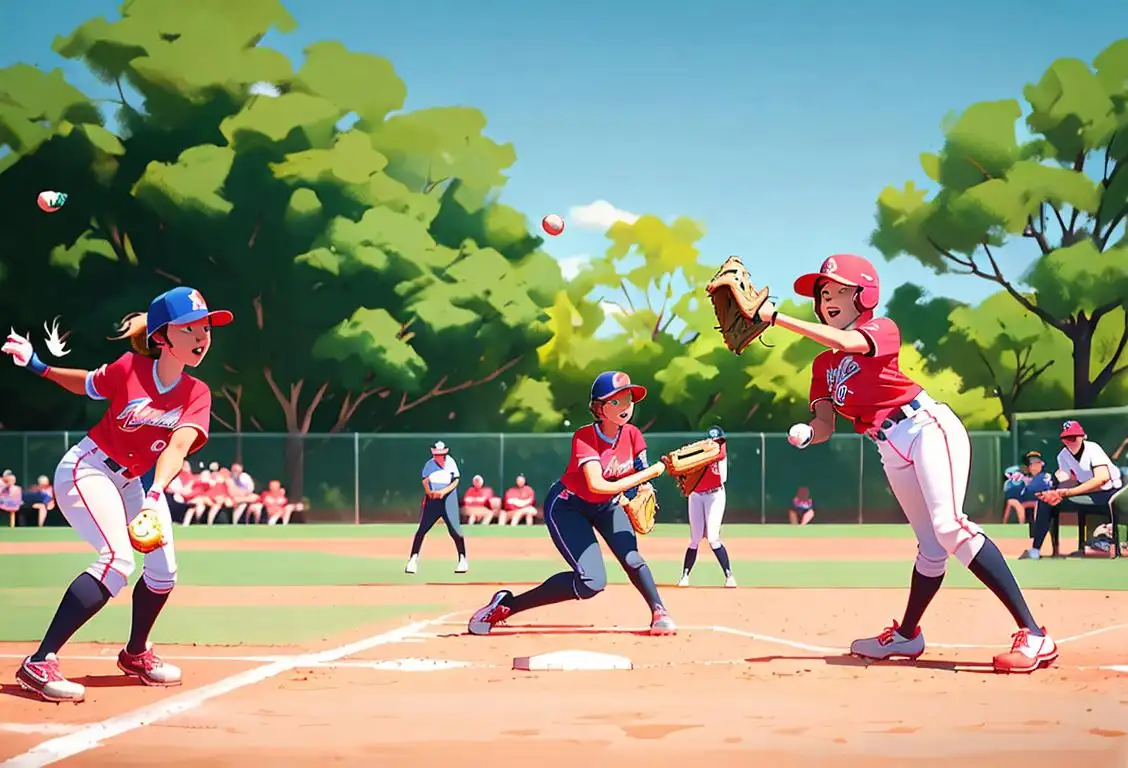National Rude Day

Who knew that curtness could have its day? It's National Rude Day, folks! A day filled with snark and sass, with a pinch of cheek all wrapped in a festive bow! But remember, it's all in good fun, so grab your wit (not your pitchforks).
When is Rude Day?
It's national rude day on the 20th February.
History: When did all the sass begin
National Rude Day began its reign of cheeky charm on the internet on February 20, 2018. A spurt of online chatter about it was noticed, soaring up to a whopping 54 mentions! It seems like suddenly everyone was looking to vent that pent-up sassiness, and boy, did the internet react!
Unraveling The Allure
So, what's the fuss about National Rude Day? Well, at first glance, it seems like an outrageous concept, but if we dig deeper, it could serve as an excellent opposite day. It's a chance to nose dive into harmless ribbing and witty exchanges. And in a world where everyone is super careful about stepping on toes, this day is a fun opportunity to let off some steam, with a hearty laugh of course.
Playing it Safe and Sassy
While a little gentle ribbing never hurt anyone, it's still essential to keep things light and breezy, especially if sarcasm is not your first language. Remember folks, it's about unleashing your inner comedians, not becoming the grinch that stole good vibes.
Making the best of National Rude Day
So how can you celebrate National Rude Day? Well, think Chandler Bing! Take the day to master your sarcastic comebacks, engage in friendly jousts, or perhaps even organize a 'Roast' among friends (don't forget the roasting rule: it's always consensual!). You can sit back and watch your favorite comedies or even create a tongue-in-cheek greeting card. The fun is endless and sometimes the day can turn into a full-blown witfest!
History behind the term 'Rude'
1589
Shakespearean slang
The term 'rude' first appeared in the English language as a slang term during the late 16th century. It was popularized by the renowned playwright William Shakespeare in his play 'The Taming of the Shrew.' In this context, 'rude' referred to someone who was uncivil, impolite, or ill-mannered.
18th century
Rudimentary origins
During the 18th century, the term 'rude' became commonly used outside the realms of Shakespearean literature. It evolved to describe behaviors or actions that were considered coarse, vulgar, or lacking refinement. This expansion of the term's usage laid the foundation for its modern meaning.
19th century
Societal manners and etiquette
The 19th century witnessed a focus on proper manners and etiquette in Victorian society. The term 'rude' gained increased significance as it was commonly used to describe behavior that violated social norms or went against accepted standards of politeness. This period marked a heightened awareness of what constituted rudeness in various contexts.
20th century
Cultural revolution and shifting norms
With the advent of the 20th century, societal norms and values started to shift significantly. The term 'rude' continued to adapt and expand its meaning according to the changing cultural landscape. It came to embody a broader range of behaviors, such as impoliteness, disrespect, or even defiance of authority. The concept of rudeness became increasingly intertwined with cultural identity and the expression of individualistic attitudes.
21st century
Digital age and online interactions
In the modern era of the internet and digital communication, the notion of rudeness has taken on new dimensions. With the prevalence of online platforms, social media, and anonymous interactions, the term 'rude' often encompasses behavior like cyberbullying, trolling, or engaging in offensive discourse. The ease of online communication has both amplified and transformed the impact of rudeness in our daily lives.
Did you know?
Did you know that National Rude Day's popularity began when netizens decided to use this unique opportunity to vent out a bit of their pent-up sass in a humorous manner?Tagged
awareness fun friends family sarcasm comedy wit roastFirst identified
21st March 2015Most mentioned on
20th February 2018Total mentions
54Other days
Rude Day
Have Sex Day
Bae Day
Softball Day
Ily Day
Winnie The Pooh Day
Cousins Day
Friend Day
Prosecco Day
Love Your Pet Day








